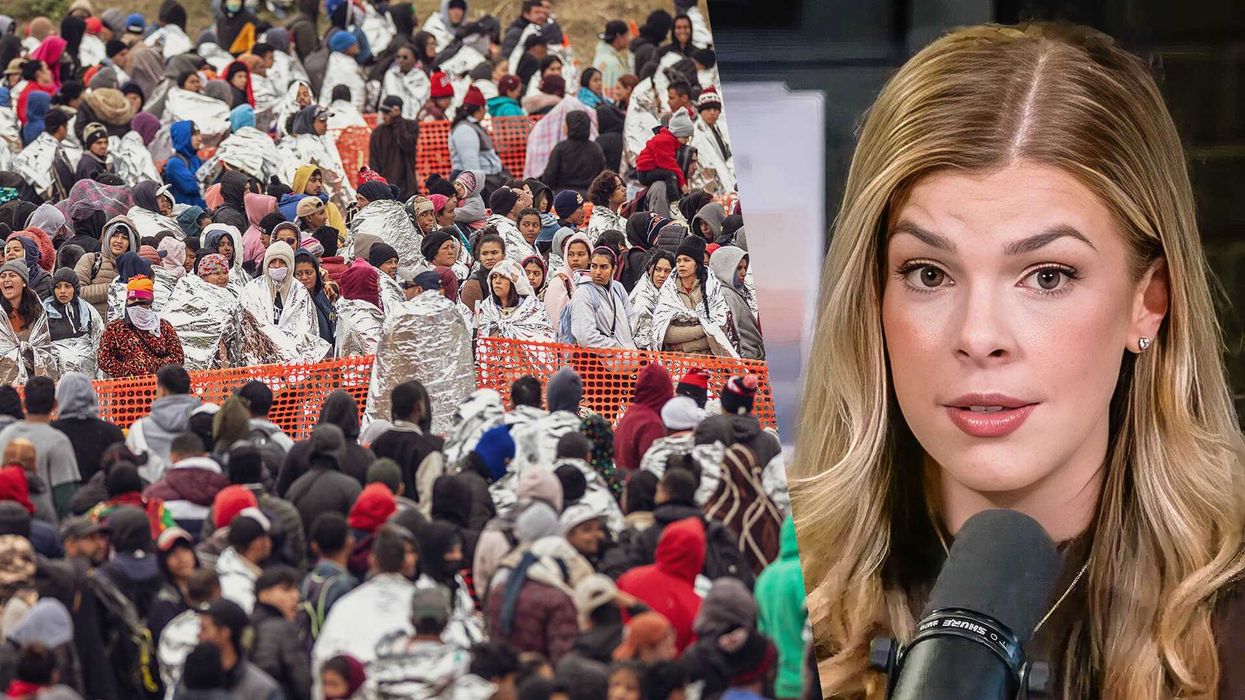
© 2026 Blaze Media LLC. All rights reserved.
We cannot simply think of the drug war in terms of its effects on Americans only, but we should also, as caring and just people, think of its effects on those south of the border
Tuesday, the Cato Institute, jointly with Google Ideas, held a very interesting event. It was all about the drug war and the violence in Mexico. Unlike other panels, however, it was not about American public policy, but more about technology, social media, and reporting on the violence.
"It was fascinating for me to stand in Juarez and look across the border to El Paso, and see that it's really the same city with a wall going through it." - Jared Cohen, Director, Google Ideas
What is striking about the current state of affairs in Mexico is not just the roughly 50,000 deaths over the past five years, but that neither the government nor the media reports on any of this. There is no trust in law enforcement, nor any for the mainstream press. Jared Cohen, Director of Google Ideas, noted that there were three main problems with law enforcement in Mexico:
- Individuals are too afraid to report crimes to police out of fear of retaliation
- There is no confidence in law enforcement, riddled as it is with gang infiltration
- And even if one did bring an issue to law enforcement, the police would very rarely do anything about it, so why take the risk?
Karla Zabludovsky, a reporter for the New York Times, told the story of a Mexican blogger who reported on the violence in her community...and because she wasn't careful with her online security, she was found out and beheaded. Unfortunately, it is only through these brave bloggers that people know anything; there is no verification of major events, like a massive shooting next to a theater that left several people dead with cars on fire, by the media or the government. The media is scared stiff; according to the Committee to Protect Journalists, 48 journalists have been killed or disappeared since December 2006, mostly because of reporting on organized crime or the drug war. The editorial board of one paper instituted a policy barring any reporting on organized crime, period, out of fear for the safety of its reporters.
Andrews Monroy-Hernandez, a researcher for Microsoft Research, studied how people use Twitter to disseminate information. Mexico is the 5th largest country on Twitter, largely because it is one of the best tools to discover where violence is going on. The majority of tweets are about real time reporting on specific of drug violence, though usually using euphemisms to avoid any direct confrontation with drug traffickers. Monroy-Hernandez also told the story of two Twitter users in Veracruz who were thrown in jail on terrorism charges for reporting on these incidents, under some guise of "spreading rumors that scare the crap out of people." This is the Mexican government shutting down the flow of information, people. (The crazy thing is: it too can happen here.)
Javier Osorio, a Ph.D candidate at Notre Dame, noted that, by the standard definition of a civil war (1,000 deaths in a year) there are the equivalent of 50 civil wars in the past 5 years. Unfortunately, the government--including the military--didn't count anything before 2007. There are massive questions about how the data is collected and what it means, and the integrity of the data collection methods.
Of course, that was the presenters and their focus. It's all a very fascinating discussion, and if you're at all interested in social media and technology, and the philosophy of liberty, you should watch the whole thing. But I want to present a few questions of my own.
First, we cannot escape the simple yet brutal fact that much of this violence--these "50 civil wars"--are the result of American policy on drugs. Narcotics Prohibition has driven up the price of drugs dramatically, thus providing a huge incentive to gangs in Mexico to smuggle them across the border. This in turn translates into bloodshed in Mexico between gangs fighting for more profits--literally. If Mexico and the United States legalized drugs, or at the very least decriminalized a great many of them (you gotta legalize marijuana one way or another), much of this violence would disappear over time. We would be saving a great many lives.
As libertarians, we cannot just care about Americans. When my colleague Travis wrote about drone strikes, he didn't just write about Americans being attacked by drones, but he also wrote about people of other lands in other lands being attacked by drones. In the same vein, we cannot simply think of the drug war in terms of its effects on Americans only, but we should also, as caring and just people, think of its effects on those south of the border, and in other lands.
This brings me to Senator Marco Rubio, who only Tuesday:

Well, Senator, if you want to "increase our influence" in one of direct neighbors, the best way to do that would be to put down some votes in favor of legalizing and/or decriminalizing drugs. Helping to end a conflict that has claimed 50,000 lives in the past five years would be an enormous influence on our southern neighbor--and since they do directly border us, I would argue we should take a little more interest in their well-being than we would in countries on the other side of the planet. Legalizing drugs may be the best foreign aid we could possibly give to Mexico.
Third, a little humility may be in order. While we constantly complain in this country about the liberal media bias...I think I would take our flawed media any day over Mexico's flawed media, which is so scared stiff it won't even report on crime happening right outside it's windows. Unfortunately, we are slowly getting to a point where the media just plain won't report on crimes happening behind the windows of the US Capitol. That would be a terrifying day indeed.
So take a deep breath, be thankful for what you have...and then strive to make it even better. Not just for us, but for everyone around the world.
Want to leave a tip?
We answer to you. Help keep our content free of advertisers and big tech censorship by leaving a tip today.
Want to join the conversation?
Already a subscriber?
more stories
Sign up for the Blaze newsletter
By signing up, you agree to our Privacy Policy and Terms of Use, and agree to receive content that may sometimes include advertisements. You may opt out at any time.
Related Content
© 2026 Blaze Media LLC. All rights reserved.
Get the stories that matter most delivered directly to your inbox.
By signing up, you agree to our Privacy Policy and Terms of Use, and agree to receive content that may sometimes include advertisements. You may opt out at any time.






